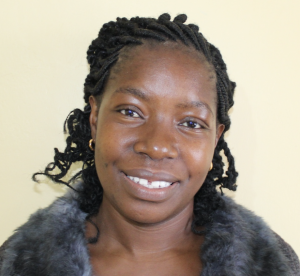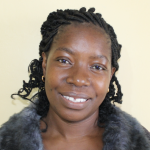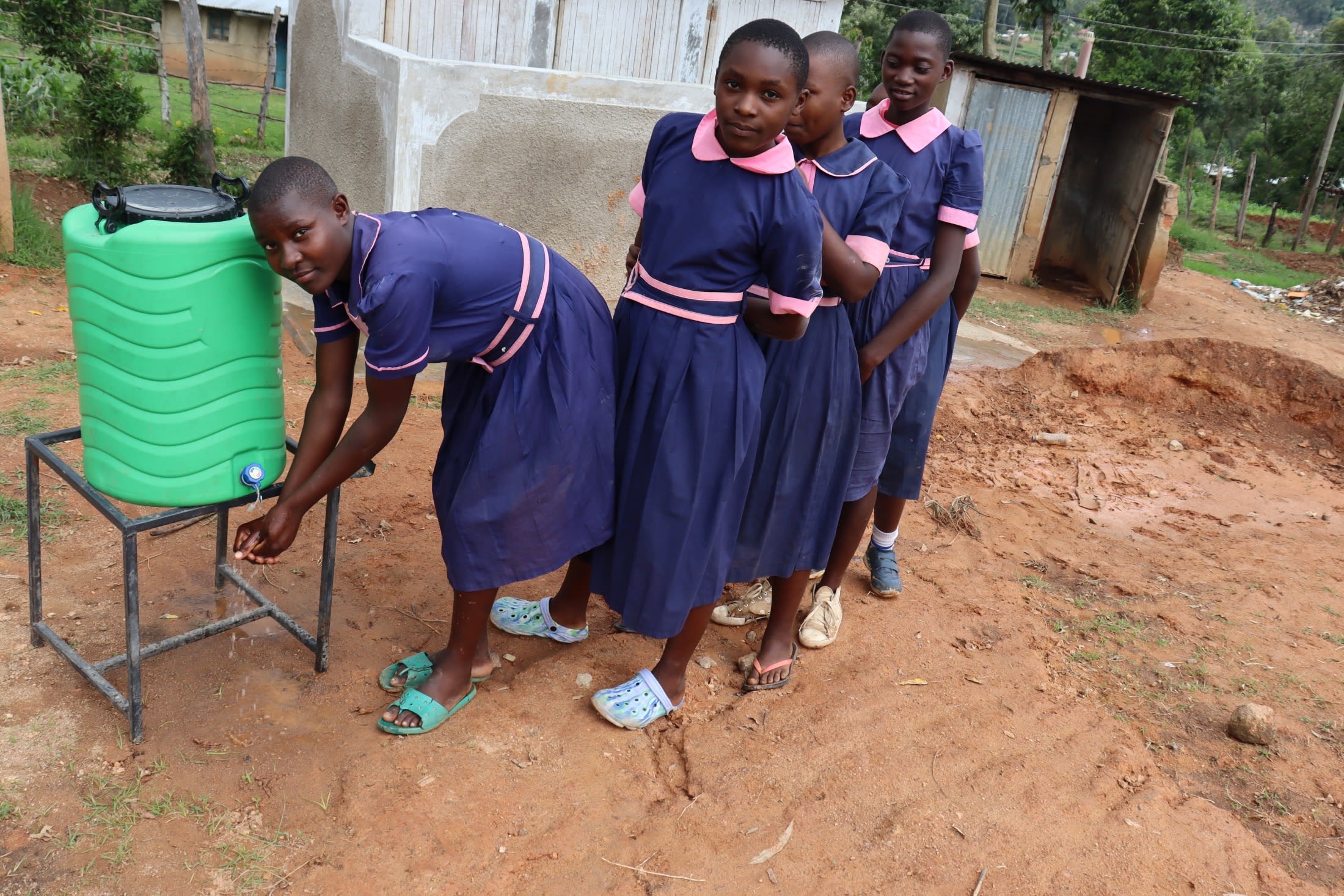The 361 students at Gamuguywa Primary School make several trips a day to collect water from a stream located over a kilometer away.
Students go to the stream during their breaks, lunch times, or sometimes even during their class time. It is an exhausting, burdensome task for students to collect sufficient water for the entire school's cooking, cleaning, and handwashing needs.
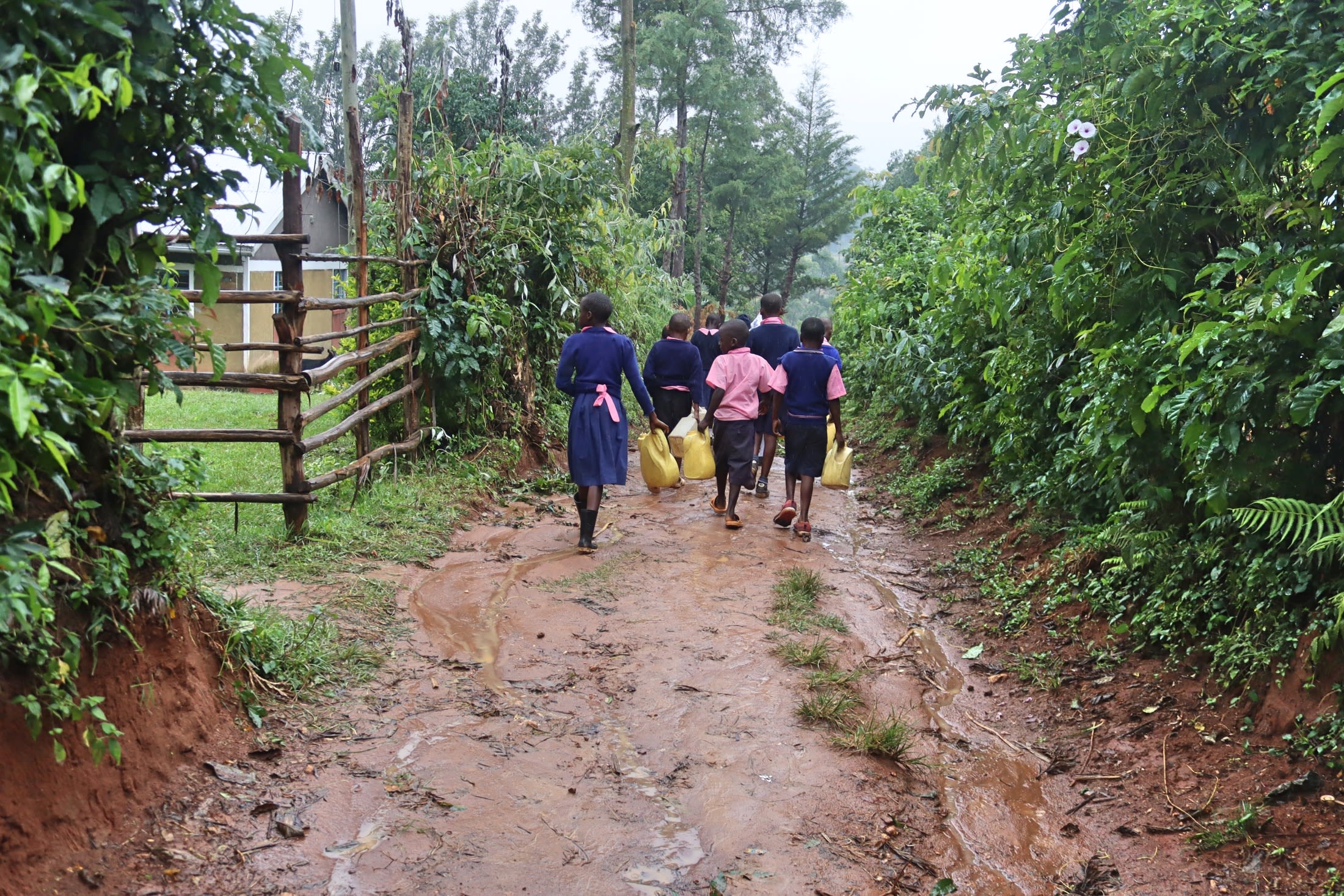
There is a 1000-liter rain tank on the school campus solely meant for drinking water, but it is too small and cannot hold enough water to last more than a couple of days. During the dry season, the tank sits entirely empty, and everyone must resort to drinking the water from the stream instead.
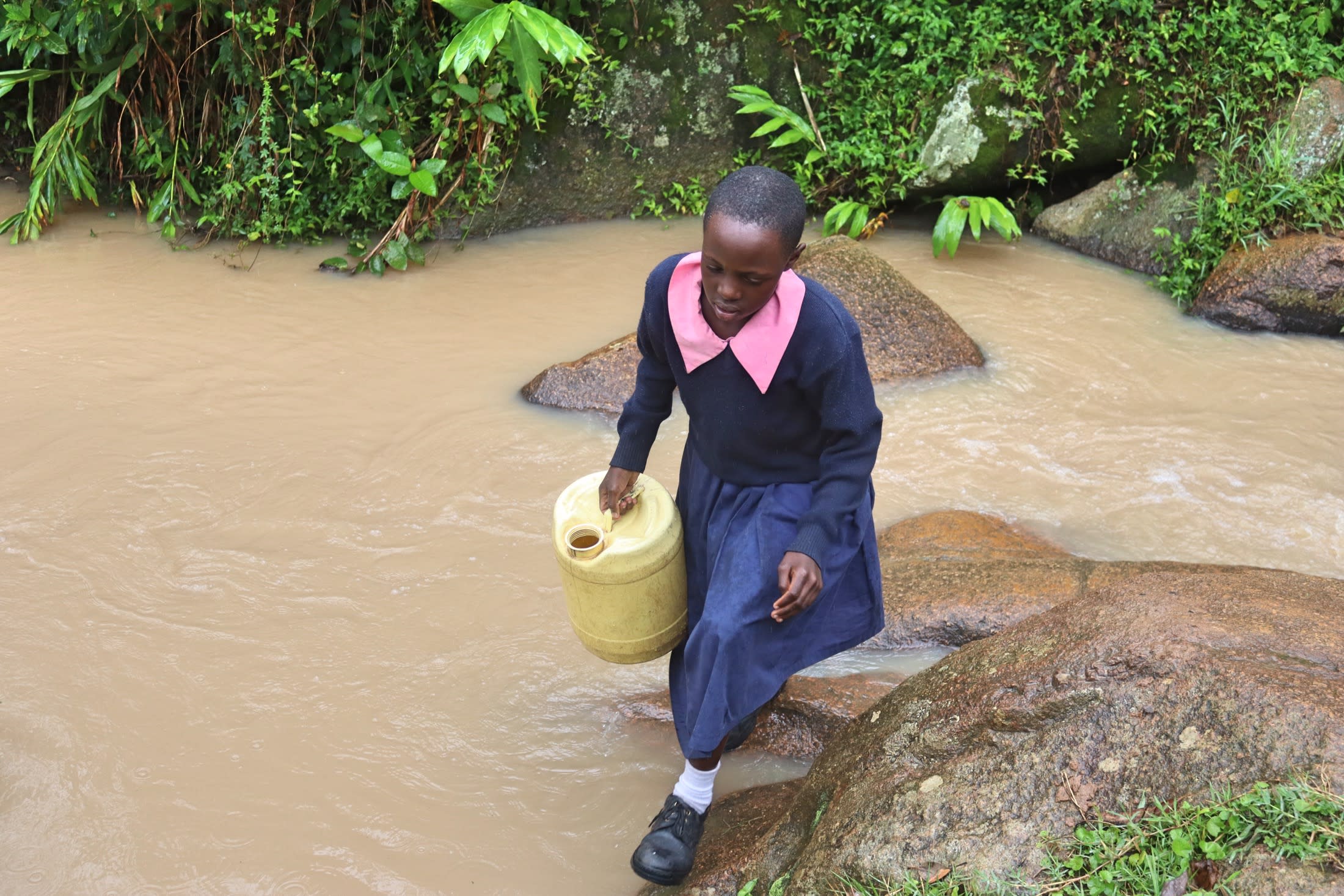
"Fetching water from the stream is very dangerous for us since one might slip and fall into the water. During rainy seasons the water in the stream increases in volume, posing a danger of drowning. We also get sick frequently because of drinking contaminated water," said 10-year-old Faith K (shown above at the stream).
The stream water is contaminated by people washing clothes and bathing, animals defecating nearby, as well as fertilizer runoff from nearby farms. Those consuming it become sick with water-related illnesses.
Field officer Christine Masinde said, "Water from the stream is filthy and colored. It is not suitable for human consumption, but since students have no choice, they take it without any form of treatment. Water from the rainwater harvesting tank lasts for a few days, and during dry seasons, it is always dry."
Christine continued: "Class time is wasted as students walk to the stream to get dirty water. Also, parents are not able to provide for the school requirements since the little money they have is to be divided between providing for the family's basic needs and financing treatment for waterborne and water-related diseases."
"When I was transferred to this school a year ago, I drank water from the stream, then after a few hours, I lost my voice! I did not know the cause, but one of the staff members mentioned to me that it might be caused by the infection from dirty water," said headteacher Collins Ogola (pictured below).
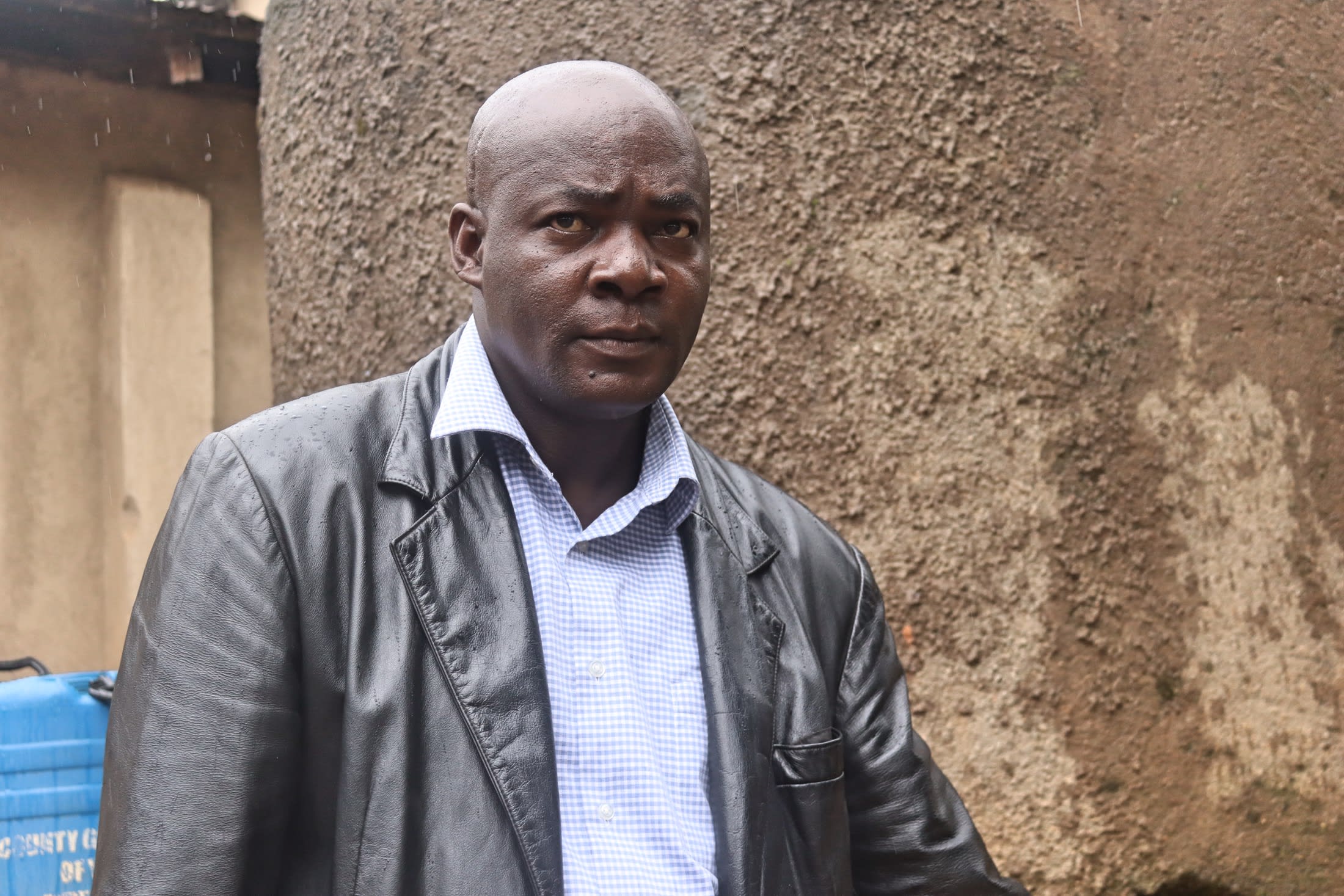
"I had to go and find out where water is fetched from, and I was heartbroken," Collins continued. "I found community members washing clothes and taking baths in the same place where students fetch water from! I really wanted to provide an immediate solution, but the school cannot afford to come up with the money to construct a water source on its own."
Hopefully, with a well on the school campus, students should be able to return to learning and enjoying their free time, and everyone should have less risk of becoming ill from drinking dirty water.
What We Can Do:
New Well
We conducted a hydrogeological survey at this school and the results indicated the water table beneath it is an ideal candidate for a borehole well. Due to a borehole well's unique ability to tap into a safe, year-round water column, it will be poised to serve all of the water needs for this school's large population, even through the dry months.
The school will help collect the needed construction materials such as sand, rocks, and water for mixing cement. They will also provide housing and meals for the work team, in addition to providing local laborers. We will complement their materials by providing an expert team of artisans and drilling professionals, tools, hardware, and the hand-pump. Once finished, water from the well will then be used by the school’s students and staff for drinking, handwashing, cooking, cleaning, and much more.
Handwashing Stations
The student health club will oversee the two new handwashing stations we will provide, and make sure they are kept clean and in working condition. The club leaders will fill the handwashing stations with water daily and make sure they are always supplied with a cleaning agent such as soap or ash.
VIP Latrines
We will construct two triple-door latrine blocks using local materials that the school will help gather. Three doors will serve the girls and three doors will serve the boys. All of these new latrines will have cement floors that are designed to be easy to use and to clean. And with a borehole right on school property, there should be enough water to keep them clean.
Training on Health, Hygiene, COVID-19, and More
We will hold a one-day intensive training session with students, teachers, and parents. This training will cover a wide range of topics including COVID-19 symptoms, transmission routes, and prevention; personal and environmental hygiene; and the operation and maintenance of the borehole, latrines, and handwashing stations. There will be a special emphasis on handwashing.
Our team of facilitators will use a variety of methods to train, including participatory hygiene and sanitation transformation, and asset-based community development. We will initiate a student health club, which will prepare students to lead other pupils into healthy habits at school and at home. We will also lead lectures, group discussions, and provide illustrative handouts to teach health topics and ways to promote good hygiene practices within the school including handwashing and water treatment. We will then conduct a series of follow-up trainings before transitioning to our regularly scheduled support visits throughout the year.
We and the school strongly believe that all of these components will work together to improve standards at this school, which will help lead to better student academic performance and will help unlock the opportunity for these students to live better, healthier lives.





 Borehole Well and Hand Pump
Borehole Well and Hand Pump
 Rehabilitation Project
Rehabilitation Project












